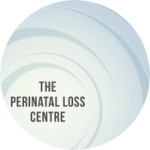Providing support following a stillbirth – What hospital staff need to know

No matter how small a baby, the impact of loss can be forever.
The ripples of loss extend through bereaved parents, their families, and through the maternity settings in which the loss occurs.
The way in which patients and their families are treated when their baby dies, has far reaching effects on the ongoing mental health of bereaved parents. Inadequate care might exacerbate an already difficult grief process.
Bereaved parents never forget the understanding, respect, and genuine warmth they received from caregivers, which can become as lasting and important as any other memories of their lost pregnancy or their baby’s brief life.” -I.G. Leon
Stillbirth: occurs when a baby dies before or during birth at or after 20 weeks gestation. In Australia, this occurs in 1 in every 135 births and 6 babies are born still every day.
Neonatal death: occurs when a baby is born alive but dies within the first 28 days of life, regardless of gestation. In Australia, 2 babies die every day as a result of neonatal death.
If a pregnancy loss occurs after 20 weeks’ gestation as a result of Stillbirth or a Neonatal Death, there is recognition by the state that the birth and death occurred, and the family can apply for a birth certificate. There is also the possibility of government financial bereavement assistance and/or bereavement leave through the parent(s)’ workplace. Friends and family usually know about the pregnancy and there is often a shared grief when the loss occurs.
A loss during pregnancy, no matter how or when it occurs, can be devastating for parents. The reproductive journey to get to the pregnancy may have been arduous. The pregnancy may have been burdened by the experience of previous losses (e.g., recurrent miscarriages and failed IVF cycles). Additionally, society, friends or family may minimise an earlier loss due to the gestation or the fact that the baby died in-utero earlier in the pregnancy versus a baby who dies later in the pregnancy or after the birth.
Stillbirth can be a taboo subject, and this can add to the parents’ grief and feelings of isolation due to the loss not being recognised or acknowledged.
When supporting parents following their stillbirth there are many ways you can help ease some of the pain and not contribute further hurt. You cannot take away the intense sadness and grief but by applying best-practice bereavement care standards, you will help minimise the impact and reduce the risk of ongoing suffering.
How you can support bereaved parents following stillbirth or newborn death
Acknowledge the loss
Families will come in to contact with many health professionals during the experience of their loss. A pregnancy loss at any time in the pregnancy can be traumatic for parents, and it is important to not make assumptions based on the gestation at the time of the loss.
Acknowledgment of the loss is paramount. Reducing stigma and lowering the risk of further isolation for parents during the early stages of their grief is important. This can start when the parent(s) first meet a health professional when the loss occurs. This may be in the emergency department, the GP’s room, an Obstetrician’s office, an outpatient clinic or in an ultrasound room.
Awareness of the sadness and grief that can exist following a stillbirth or newborn death can assist parents in their grief journey and in time, help them to navigate and integrate the loss into their lives.
Always acknowledge their loss. Say something like “I am so sorry you are here with us” or “I can’t imagine what you are going through but I am here to support you through this”. If you show empathy for another human being’s suffering and don’t try to fix their pain, you are more likely to show that you are genuine and sincere in your care and support.
Good communication
Be clear and use non-medical jargon to explain what is going to happen every step of the way. Information will be forgotten as parents will grapple with all the decisions that are ahead. Shock and grief can cause parents to feel like they are in a fog and will often say on reflection, that it was all a blur and that they didn’t remember conversations had. Repeat information over the hours and days and offer written explanations so parents can follow up with what has been said.
Be clear when explaining the legal responsibilities (e.g., when explaining the requirement for parents to register their baby’s birth in their state; the need for cremation or burial of their baby’s remains when the baby is a stillbirth or neonatal death etc).
Be present
Perinatal Loss can be challenging for Midwives, Doctors and Nurses. It is difficult to sometimes get the language ‘right’ and feel like you are making a difference when supporting a family following their loss. It is difficult to know what to say and do as well as knowing what not to say and what not to do. Be present and know you cannot take away the pain but by being there with them in their space, being empathic and listening to them in an unharried manner will help. Allow repeated opportunities for questions to be asked and don’t guess if you don’t know the answer to something.
Don’t rush
In a busy maternity setting it is often difficult to not appear rushed and, in a hurry, to get things done. This is not the time to tick boxes and finish a list of tasks. We need to slow processes down and give bereaved parents plenty of time to come to informed decisions. So, try to be led by them and their time frame. There should also be opportunity for parents to change their minds about important decisions and let them know that indecision is normal. Deadlines or pressure should never be put on parents when making decisions around what happens with their baby.
Provide individual care
Every parent experiencing a perinatal loss will experience a different perspective of their loss. There is no ‘one size fits all’ approach. Care must be individualised to that family. This means you need to ask the parents what they want. A parent who is grieving is often able to articulate what they want for their baby and by asking questions, you will be able to provide opportunities for parents to think about what they want for their baby and be the main carers of their baby’s bereavement care. Respect cultural, religious and individual beliefs. Remember, this is their child, and they are the best spokesperson for their baby.
Offer parenting opportunities
Creating memories is a privilege and a very important part of the grief process. There is a small window of opportunity to do this while bereaved parents are still in the maternity setting so offer moments where the parents can parent their baby who has died. Examples may include spending time with the baby (if appropriate), holding, seeing, bathing, rooming-in in a cuddle cot, dressing, and meeting other family members (siblings, grandparents etc). Making tangible memories with the parents such as a memory folder, foot & handprints, taking photos, video footage, recording measurements, keeping clothing which has touched the baby’s skin, baby bracelets, cord clamp etc should be offered to the parents. There are many ways you can help parents to create memories of their baby.
It was so special that we got to spend those hours with Matilda. We were very nervous at first however the midwife helped me dress her and we got to swaddle her in the blanket my sister had knitted especially for her”.
Offer referral and ongoing support
It is important that bereaved parents continue to feel supported in their community following discharge from the maternity care setting. It can take many weeks and months for the loss to be integrated into the parents’ lives where they feel a sense of normalcy and are able to return to the day-to-day activities of work, relationships and the mundane. Some will feel well supported by family and friends, others will reach out to support organisations who have experience with pregnancy and baby loss.
Some bereaved parents will seek expert grief counselling through a counsellor, phycologist or psychiatrist. It is important to provide written information of these specialised support organisations, so parents know where to turn to once discharged out of your care to home. It is possible for you as a health professional to refer a bereaved parent to Red Nose/SANDS.
You can find private and public support services for stillbirth in the perinatal loss section of the e-COPE Directory.
Seek training and build your understanding and confidence
Application in your practice of best-practice bereavement care standards will assist you to deliver the respectful & supportive care these families deserve.
Training in Perinatal Loss
Online course: “Perinatal Loss in Practice: What Hospital Staff Need to Know.”
Delivered by Eliza Strauss, Bereavement Midwife, The Perinatal Loss Centre
COPE accredited training program (5.5 professional development hours)
Endorsed by ACM (Australian College of Midwives)
What you will learn:
- Learn practical, hands-on approaches to build your confidence in supporting perinatally bereaved families
- Understand Perinatal grief and how this type of grief impacts families
- Understand the different types of perinatal loss – miscarriage, stillbirth, neonatal death & termination of pregnancy – including legal definitions of each
- Recognise the common reactions parents experience following perinatal loss
- Understand the challenges bereaved parents face following the death of their baby(ies)
- Understand the challenges that the health care professional must navigate when caring for bereaved families
- Learn what ‘parent-centred care’ means and why it is important in the context of perinatal loss including the five (5) core goals of effective bereavement care
- Learn about the processes around post-mortem and funeral arrangements
- Illustrate examples of memory-making opportunities to enhance parenting experiences
- Be aware of perinatal bereavement support organisations which offer ongoing support following discharge from hospital including a subsequent pregnancy
- Be aware of and implement self-care opportunities
For information and training details: www.theperinatallosscentre.com.au/training
To view course outline and register, visit the COPE Training portal
 This information was developed in partnership with the Perinatal Loss Centre.
This information was developed in partnership with the Perinatal Loss Centre.
The Perinatal Loss Centre is an organisation dedicated to providing support to health professionals and families affected by the death of babies.
For more information, visit their website here